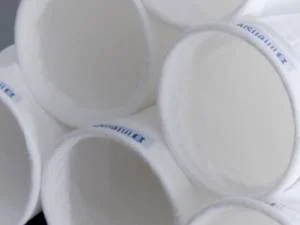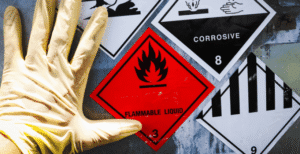As the world grapples with climate change, pollution, and the health effects of industrialization, the importance of clean air has never been more urgent. Governments, organizations, and communities worldwide are aligning with the United Nations’ Sustainable Development Goals (SDGs) to promote environmental protection, human health, and sustainable industrial growth. One critical yet often overlooked component in this journey is the role of air filtration systems.
Air filtration systems, particularly in industrial settings, are not just about compliance—they’re about responsibility. These systems actively reduce airborne pollutants, protect ecosystems, and improve indoor and outdoor air quality. Companies like Intensiv Filter Himenviro are at the forefront of this mission, developing advanced air filtration solutions that not only meet regulatory standards but also significantly contribute to global sustainability goals.
Why Clean Air Matters for Sustainability
Air quality impacts every aspect of sustainability—from human health to climate action. Pollutants such as particulate matter, volatile organic compounds (VOCs), and toxic gases contribute to respiratory diseases, reduce crop yields, and even alter weather patterns. Industrial emissions, in particular, have a substantial footprint that needs urgent addressing.
By integrating high-performance air filtration systems in factories, power plants, and processing units, industries can drastically reduce their emissions and align their operations with sustainability benchmarks.
Air Filtration and the United Nations Sustainable Development Goals (SDGs)
Here’s how air filtration systems play a direct role in supporting the most relevant SDGs:
SDG 3: Good Health and Well-being
Airborne pollutants are a major cause of chronic respiratory conditions, heart disease, and other health issues. Air filtration systems help by removing dust, smoke, and harmful particulates from the air, creating healthier environments in both workplaces and communities. For industries, this means safer conditions for employees and a positive public health impact for surrounding areas.
SDG 9: Industry, Innovation, and Infrastructure
Sustainable industrialization is not possible without clean processes. Advanced air filtration technologies are an innovation driver, allowing industries to modernize their operations without compromising environmental standards. By adopting these systems, companies demonstrate leadership in clean technology and industrial responsibility.
SDG 11: Sustainable Cities and Communities
Urban areas with high concentrations of factories often suffer from poor air quality. By installing filtration systems at the source of emissions, industries help build cleaner, safer, and more livable cities. Reduced pollution levels lead to better quality of life and lower healthcare costs for the population.
SDG 12: Responsible Consumption and Production
Air filtration promotes the responsible use of materials and cleaner production cycles. When emissions are minimized, there’s less environmental degradation and a stronger focus on eco-conscious manufacturing. Filtration systems also help in capturing and recycling fine dust or fumes, reducing waste.
SDG 13: Climate Action
Though not all emissions are greenhouse gases, reducing particulate and chemical pollution contributes to better atmospheric health and climate balance. Moreover, efficient air filtration supports overall environmental management, complementing efforts to decarbonize industries.
Kết nối với chúng tôi ngay
Technological Advancements That Support Sustainability
At Intensiv Filter Himenviro, innovation is driven by the need to balance industrial productivity with environmental protection. Our air filtration systems are built with energy-efficient technologies that minimize pressure drops and maximize particle capture. Whether it’s dry filtration systems like baghouses or advanced electrostatic precipitators, our solutions are designed to work silently behind the scenes to reduce emissions and energy consumption.
We also focus on the longevity and reusability of filter elements, ensuring minimal material waste and lower operational costs. Automated cleaning mechanisms, modular designs, and customizable configurations allow industries to integrate filtration with minimal disruption.
Real-World Impact
Industries across sectors—from cement and steel to pharmaceuticals and chemicals—have experienced measurable environmental improvements through advanced filtration. Reduced emissions, improved air quality inside facilities, and compliance with environmental norms have helped many companies transition toward cleaner, greener operations.
In some cases, industries have been able to reuse filtered materials, such as metal dust or chemical particles, further aligning with the circular economy model and reducing resource dependency.
A Call to Responsibility
Sustainability is no longer optional—it’s a global mandate. By choosing to invest in efficient air filtration systems, companies don’t just meet regulatory requirements; they take a stand for the planet. These systems represent a tangible step toward cleaner air, healthier communities, and more sustainable industrial growth.
As more organizations align their operations with the SDGs, air filtration emerges as a foundational technology in the transition to a greener future. The journey to sustainability doesn’t always begin with large-scale reforms—it often starts with something as fundamental as the air we breathe.
Phần kết luận
Air filtration systems are silent allies in the fight for a sustainable planet. From supporting health and innovation to reducing emissions and promoting responsible industrialization, they are integral to achieving global sustainability goals. Companies that prioritize air filtration are not only protecting their workers and the environment but also positioning themselves as forward-thinking leaders in sustainable development.
At Intensiv Filter Himenviro, we are committed to advancing clean air technologies that serve both industry and the environment. By working together, we can ensure that clean air remains not just a goal—but a reality.



